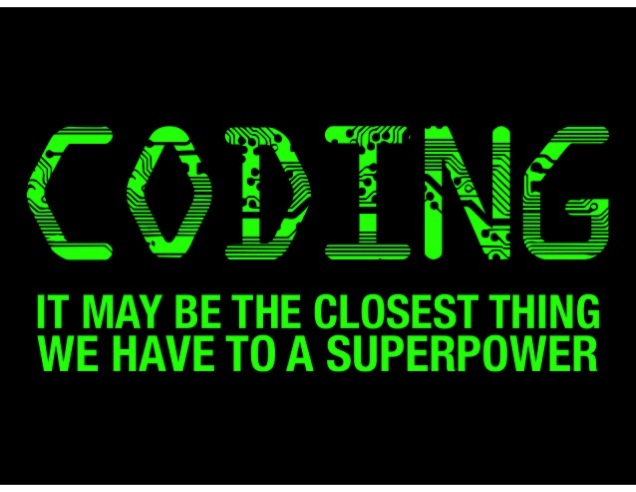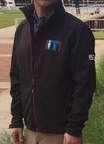
The title of this article is a question, because I admit my ignorance of the answer. I’ve not been paying much attention to THE conversation, since I have finally accepted my status as retired. Wahoo! But I am working on another book, so my mind is still in our righteous endeavor, even though my PLN has evolved.
The book I am working on will be a history of technology in education, as I have witnessed it – so programming is on my mind. You see, that’s what we called it back in the 1982, programming. So I was struck by a sense of déjà vu when I saw so much of the edtech discussion, at the recent Raleigh NCTIES conference, devoted to coding.
But are we (and I’m asking this question seriously) missing the point of a skill that has been so important to me, not to mention a pure personal joy? You see, what has made coding so important is not necessarily its practicality, though I have been able to support the educational endeavors of many teachers with my tools. It’s not even the bread it has put on my table, though I am enormously appreciative of that.
I often tell the story that on that first afternoon, after spending my first couple of hours teaching myself how to program (uh, code), I got on my hands and knees and I thanked every algebra teacher I had ever had. There was finally a practical use for those mystical techniques for manipulating numbers.
But there was a major difference between how I was using Math and how I was taught Math – and it is a difference that strikes right at the heart of what we’re doing wrong in education. You see, I immediately understood, though I may not have been able to express it, that I was using Algebra as a language, in order to instruct the digital environment (Radio Shack TRS-80 computer) to behave in the way that I wanted. If you can communicate with a computer, then you can use it to learn and express.
We learned Reading so that we could read our textbooks and other more authentic sources of knowledge. We learned to Write so that we could articulate our growing knowledge. Maybe we should learn Coding in order to learn the language of numbers, so that we can learn from our own thoughts and express our ideas in endlessly creative ways.
..instead of teaching Math and teaching Coding.
Of course, I’m not the first to suggest such a radical idea. It was during those earliest years that some very smart people (Seymour Papert & my friend, Gary Stager for two) were already suggesting and putting into action this very idea with the Logo programming language.
Image Attribute – Coding: It May be the Closest Thing We Have to a Superpower [Digital Graphic]. (2016). Retrieved from http://sfmstechapps.org/2016/02/lets-code/coding-super-power/ From the web site of Spring Forest Middle School Tech Apps Activities

